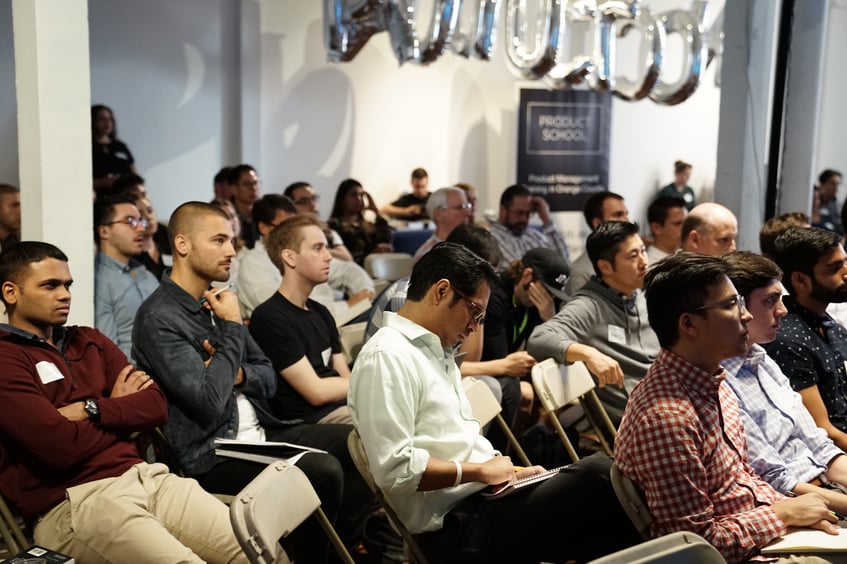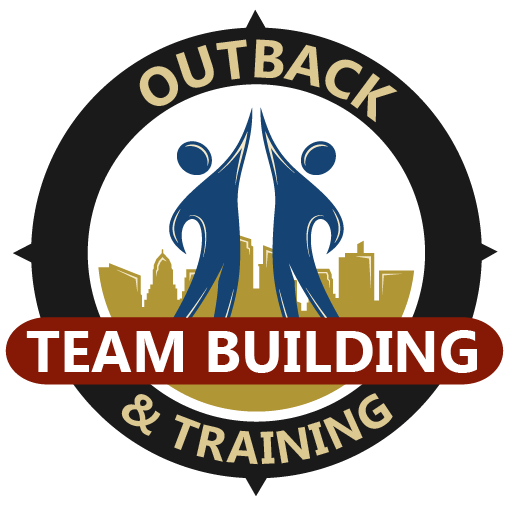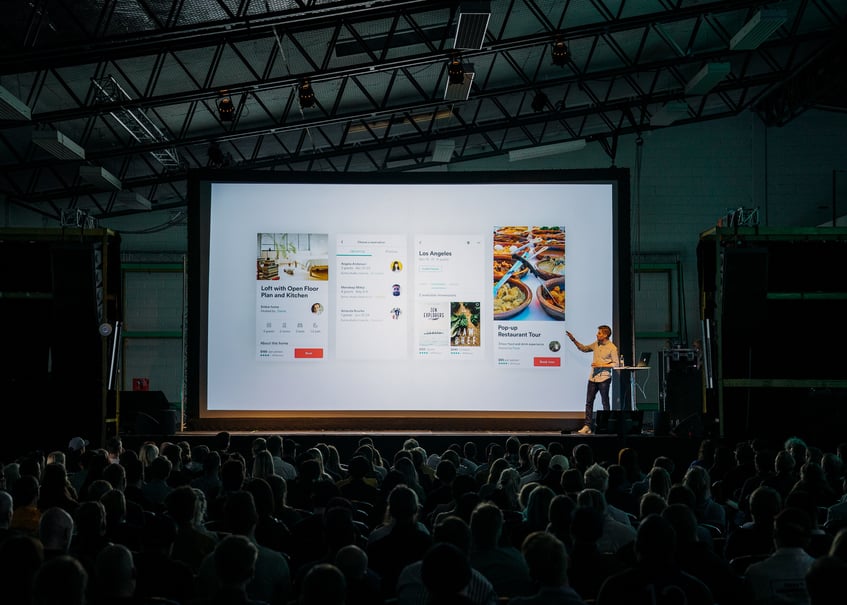Keynote speakers can make a great and memorable addition to many types of corporate events but finding and hiring the perfect one can be a daunting undertaking.
Corporate keynote speakers can make a great and memorable addition to many types of corporate events but finding and hiring the perfect one can be a daunting undertaking.
Guest speakers for corporate events can help create a greater impact when it comes to engaging your audience and driving home important key messaging. But finding the right corporate event speakers can be easier said than done. By understanding the key considerations for your search and the right questions to ask a potential keynote speaker, you can help ensure you find the perfect fit for your event. In this blog post, you’ll learn about several important topics, such as:
- The Four Biggest Obstacles Event Planners Face When Securing a Keynote Speaker, including…
- 10 Key Considerations, Questions, and Tips for Finding the Right Keynote Speaker, laid out according to what you need to do…
According to the Event Marketing 2019: Benchmarks and Trends Report, 84% of Vice President and C-Suite level executives believe in-person events are a critical component of their company’s success.
So, whether it’s a big external event intended to generate new leads and raise a company’s profile, or an internal event with the goal of inspiring and educating employees, getting people together for live events is extremely valuable. But it’s important to make sure the event is engaging, captivating, and brings value to guests – a fact backed up by a study from Event MB that found 91% of event professionals believe increasing event engagement is a top priority.
So, how can organizations ensure they’re hosting exciting, unique, and elevated events that bring true value and impact for attendees?
Enter: the corporate keynote speaker.
According to that same Event MB study, 53% of event professionals say their attendees want greater interaction with speakers at their events. That’s because the perfect corporate event speaker can help add an amazing new dimension to any type of event, including:
- Fundraisers and galas
- Trade shows and conferences (believe it or not, American Express data shows that these account for one-fifth of all events in North America)
- Kick-off meetings and company retreats (for more information on how to host these yourself, check out our blog posts: Everything You Need to Know About Planning the Ultimate Company Retreat and An Event Planner’s Guide to Epic Company Kick-Off Meetings)
- Product launch events
- Seminars and workshops
- Awards ceremonies
Great corporate keynote speakers can attract guests, engage and entertain your audience, reinforce key event themes, inspire your guests and offer unique and actionable insight, and provide valuable takeaways that will make your event stand out. But here’s the challenge: finding the right keynote speaker can sometimes feel like an overwhelming task.
Fear not. In this article, we dive deep into the biggest challenges that event planners encounter when trying to lock down a guest speaker for corporate events as well as some key considerations to make, questions to ask a potential keynote speaker, and tips to follow to make sure you find and secure the perfect presenter.
The Four Biggest Obstacles Event Planners Face When Securing a Corporate Keynote Speaker

While there are thousands of corporate keynote speakers in North America spanning every industry, interest, and background imaginable, that doesn’t necessarily mean it’s going to be easy to identify and secure the one for your event. So, before you get into your search, it’s important to understand a few of the big roadblocks event planners often bump into during the process. By being aware that you might encounter these challenges, you’ll be better equipped to deal with them. Here are four big ones.
1. Finding Somebody Who Resonates with the Audience and Offers Strong Take-Home Value
You probably have some idea of the type of speaker you’re looking for. But as you get into your search, you will quickly realize that there is significant diversity among speakers, even those specializing in the same field or industry. If you’ve got the time, budget, and resources at your disposal, you may want to consider sending out a survey or do focus groups in order to crowd-source insights into who people might to listen to. For instance:
- If you’re hosting a ticketed event, consider collecting feedback from your early bird ticket purchasers – this will give you great insight into who will work well while also acting as an enticing perk for your first purchasers in providing their input
- If you held a previous event, send a follow-up survey to your attendees to gauge whether they enjoyed the speaker and if they have any recommendations for future improvement
2. Bumping Up Against a Time Crunch
There’s a good chance that finding your corporate keynote speaker will be a time-consuming process, especially if you have internal hoops to jump through to secure approval on them. Add to that the time you’ll require for contract negotiation and logistics coordination and you may encounter a challenging time crunch if you haven’t planned properly.
3. Finding Somebody That Fits in Budget
Great corporate keynote speakers don’t always come cheap. You may find yourself bumping against budgetary challenges if you’re hoping to secure Steve Wozniak (Co-Founder of Apple) and have only set aside a thousand dollars. It’s important that your expectations align with your budget. And you’ll be in double trouble if you haven’t accounted for the “unexpected” expenses that come with booking a speaker. More to come on that.
4. Navigating Managers, Agents, and Availability Constraints
Finding a corporate event speaker you’re interested in doesn’t mean you’ve got them locked down. That’s because they still need to be available on your desired dates and there’s a good chance you might need to go through a gatekeeper to sign them on – whether it’s an agent, a manager, or a third party.
10 Key Considerations, Questions, and Tips for Finding the Right Keynote Speaker

Now that we’ve established the challenges you might encounter when you’re trying to track down that perfect corporate keynote speaker, we can follow it up with good news: if you approach your search strategically, you can find a speaker that checks all your boxes and delivers a memorable and valuable performance. In order to find a corporate keynote speaker who’s going to make a big splash at your event, here are ten key considerations to keep in mind, questions to ask a potential keynote speaker, and tips to implement – before, during, and in follow-up to your search.
Before You Start Looking for a Corporate Keynote Speaker
- Develop a Detailed Overview of Your Goals – You should never start your search with the goal of simply finding somebody to fill your guest speaker slot. Instead, the goal should be to find a speaker who aligns with the theme and objectives of the event. So, before you start looking around for a corporate keynote speaker, it’s important to understand exactly what you’re hoping to achieve by partnering up with them. This could be things like:
- Adding credibility to your event
- Assisting with event promotion (this is a common need since 36% of event marketers cite increasing event registration as their biggest challenge, according to Bizzabo)
- Increasing audience engagement
- Generating buzz and excitement
- Reinforcing the theme of your event
- Providing your audience with important takeaways
- Offering insights, fresh ideas, and new perspectives
- Sharing skills and educating guests
- Conveying an understanding of a new product, service, or industry
- Boosting morale
You should also consider the flow of your event in order to identify the right speaker. For example, a kick-off speaker who opens up the event should be able to convey the big picture, setting the tone and outlining goals for the day. A midday speaker needs to be energetic and dynamic in order to revive and reenergize the audience – especially after a lunch break. The closing keynote speaker has to be able to pull together the key messages from the entire day which means they will need to be flexible in their content and able to adapt on the fly.
You may also want to find somebody who is willing to do pre-promotion of your event in order to drive awareness, engagement, and excitement.
By closely considering and understanding your exact goals, you can more easily narrow in on the right partner.
- Consider Your Audience – On the flip side of that coin, it’s equally important to understand who your audience is so that you can identify what will check their boxes when it comes to a speaker. Take a look at:
- Your Audience Demographic: Are these seasoned businesspeople? A group of international young urban professionals? Edgy innovators brimming with new, outrageous, cutting-edge ideas? The people in the room will dictate the type of speaker that will work best for your event – whether it’s a young, trendy speaker, or a notable expert with vast experience. For instance, a marketing-focused audience might be more engaged by a celebrity speaker while an audience of medical professionals might be more interested in hearing from a leading, highly recognized scientist or doctor.
- What Your Audience Might Want: What types of lessons would they like to learn? Are they going to be in search of specific or technical information they can take away and put into action immediately? Or are they looking for something that provides broad insights and provokes new ideas? What are the issues or concerns they want to address or problems they want to solve? Are they in search of an intense and thought-provoking session, or an uplifting and light-hearted one? Understanding what your audience wants will help guide you in the right direction when it comes to finding a keynote speaker that brings value to your guests.
- The Size of Your Audience: How big is your audience? This will impact the type of speaker you should look for. For example, a smaller crowd made up of attendees might enjoy a more interactive session, such as a discussion format. On the other hand, a larger crowd may be more interested in listening intently to a speaker who imparts their wisdom and knowledge in a one-way fashion.
- Outline a Budget – This is one of the biggest factors you need to consider when you begin your search for a corporate keynote speaker. According to Bizzabo, event planners allocate an average of only 10% of their event budget to speakers. According to Forbes, speakers in the United States can command anywhere from $2,000 to $30,000 and beyond, with well-known speakers and celebrities generally starting off at the $50,000 mark. So, this might narrow the scope of your search significantly depending on the size of your event and budget.
It’s also critical to ensure you don’t neglect “unexpected” expenses, including flights, hotels, on-ground transportation, per diems for meals, and even riders –items that speakers might want to have on-site, including everything from specific snacks and beverages to green room requirements and lighting and A/V specifications. It’s wise to play it safe and budget high when it comes to speakers, even if you don’t end up needing it all.
- Identify Types of Speakers Who Might Work – Equipped with a comprehensive understanding of your goals, your audience, and your budget, it’s time to start narrowing down the scope of your upcoming search by identifying the types of corporate event speakers who might be a fit with your specific situation – and there are a ton to choose from. Break out a list of the different options you have when it comes to types of speakers. This could include, but is certainly not limited to:
- Ex-politicians
- TV, music, and film stars
- Media personalities
- Sports heroes
- Inspiring people who have beaten the odds
- Entrepreneurs
- Industry experts such as CEOs and authors
While this might not tell you exactly which speakers you will pursue, it can help you rule out types of candidates that wouldn’t be a fit so that you can streamline the selection process and avoid pursuing dead-ends.
- Create an Outline to Share – Once you’ve got your ducks in a row as to what you’re looking for, it’s time to put together an abstract – more officially known as a Call for Speaker Proposals. This is a comprehensive document that you will share with potential candidates in order to provide them with all the details, right off the bat. Your Call for Speaker Proposals should include:
- Dates, times, and location
- Any travel requirements
- Event theme
- Discussion topics
- The length of the presentation you’re in search of
- Audience size and demographics
- Information about your company
- Event itinerary
- Your budget
The more detail you can provide in your Call for Speaker Proposals, the easier and more streamlined your search will be. If you’re looking for a great template for this, PandaDoc – a service we use here at Outback Team Building & Training – offers a comprehensive and customizable one.
During Your Search for a Corporate Keynote Speaker
You’ve planned, you’ve strategized, you’ve locked in what you’re looking for, and you’re ready to get your search underway. But here’s the big question: where do you even start? With so many options available spanning various industries, backgrounds, benefits, and expertise at a wide range of different price points, how do you go about identifying and securing your keynote speaker? Here are a few tips you can use to make it easier.
- Know Where to Look – In past years, finding and securing keynote speakers was a much tougher challenge than it is today. While you still have to do a significant amount of research to find the right one, there are a ton of resources available to help make your search easier, including:
- Speakers’ bureaus – These agencies will generally help you find the best possible fit from a list of the various speakers they book. They are usually paid with a percentage of the speaker’s fee so it’s just as cost-efficient to deal with them as it is to deal directly with a speaker. Services like The National Speakers Bureau and SpeakerHub are great options.
- Social media – Believe it or not, the social networks you use every day are a great way to find speakers. Head to Instagram, Twitter, or LinkedIn and search through hashtags that are relevant to your event, scroll through videos, browse professional profiles, and check with niche groups and organizations that fit with what you’re looking for. For instance, check out hashtags such as:
- #Keynote
- #Presenter
- #(Industry Term)
- Publications – Keep track of publications that are relevant to your industry and add authors to your list of potential speakers. People who are profiled in publications or featured as guest contributors can often make for great keynote speakers. And tools like Buzzsumo can help you find the most shared articles and blog posts on any given topic.
- Referrals – Referrals are one of the most tried and true means of finding great speakers. Tap into your network to see if you can find great speakers that your friends, family, or colleagues have had a great experience with.
- Vet Them Thoroughly – Once you’ve found some viable candidates, you’re going to want to vet them thoroughly. First and foremost, make sure you’ve actually watched them in action. Check for videos on their website or social media. And if there aren’t any there, you should consider requesting them.
While it’s critical to find a corporate event speaker who can put on a great performance, it’s also important to find somebody who is professional, helpful, and easy to work with. Not only are you trusting them to enhance your event, you’re also probably going to be spending a lot of time working closely with them. So, you can take your vetting process a step further by asking a few discovery questions like: - What makes a good keynote speaker in your eyes?
- Describe a time when you turned down an event because it wasn’t a good fit for you.
- Describe how you adjusted on the fly during a keynote speech when you realized you had lost your audience.
- Describe the biggest mistake you’ve made at an event, and how you handled it.
- Can you describe your ideal event to speak at and why?
- Can you describe your favorite client and what makes them that? Can you describe your least favorite client?
This is a big decision, so it’s critical that you make it a well-informed one.
- Working with Agents, Managers, and Third Parties – The gatekeepers to keynote speakers can sometimes make the process slower, but they are there to facilitate mutually beneficial situations between their clients and prospective bookers. Here are a few tips to help you navigate the process of working with agents, managers, and third parties.
- Allow Ample Time to Lock Everything In – When working with managers, agents, third parties, or even speakers themselves, make sure to leave ample time to get all the details finalized. This goes for negotiations on price, contract finalizations, and back and forth with regards to subject matter and speaking points.
- Booking Agents vs. Going Direct – When working with an agent or a speakers’ bureau, they will take a lot of the legwork out of the process for you. If you go directly to a speaker, you will likely find reduced turnaround time on communication, but you may find that you need to handle more of the logistics yourself. You may also find that some speakers simply don’t have agents, so in this case, be prepared to look after the facilitation of any travel and accommodations they may need.
- Expect to Pay a Deposit – When you start getting into the process of locking down your speaker and developing contracts, keep in mind that you can likely expect to pay a 50% deposit at the time of booking.
- Review Contracts Thoroughly – It’s important to review your speaker contracts closely to ensure you know exactly what’s in them. This includes basics like date, time, and location, but may also include unexpected things like:
- You having to foot the bill for things like specific lighting and A/V requirements and items in their rider
- Specifications on stage size
- Their preferred distance from the crowd
- Minimum number of guests in the audience
You should also confirm their cancellation policy to ensure you don’t run the risk of finding yourself in a bad spot. Make sure to review these thoroughly so you can discuss anything that seems unreasonable before signing the contract and providing your deposit.
In Follow Up to Your Corporate Keynote Speaker Search
Once your event is over, take the opportunity to gauge its success as well as the success of the speaker you selected. The best way to do so is to proactively seek feedback from the people who attended your event. Consider sending a post-event survey to those who attended. You can ask questions like:
- How satisfied were you with the event?
- How useful did you find the information presented at the event?
- Did you enjoy the keynote speaker? If so, what did you enjoy most?
- Do you feel you gained value from listening to the speaker?
- Have your professional skills improved because of this event and the speaker?
- How would you rate the keynote speaker? How would you rate the event?
- Was the event better, worse, or on par with what you expected?
- What advice would you give to the event organizers?
You should also check your social media channels and relevant hashtags to gauge the volume of people talking about your event. And, if applicable, examine whether there was a boost in registration or ticket sales following the announcement of the speaker. There are also some great services available, such as Attendify and Guidebook, that build an event-specific app for you that you can share with your guests and use to track specific metrics.
If you’re planning a conference, trade show, full-day meeting, company retreat, or any other type of event and are looking for a way to amplify it, get in touch with us to learn about how the right team building activity can bring added value for you, your team, and your organization.
Need Help Planning a Team Building Activity for Your Next Corporate Event?
For more information about how team building activities can enhance and amplify your next event, just reach out to our Employee Engagement Consultants.



